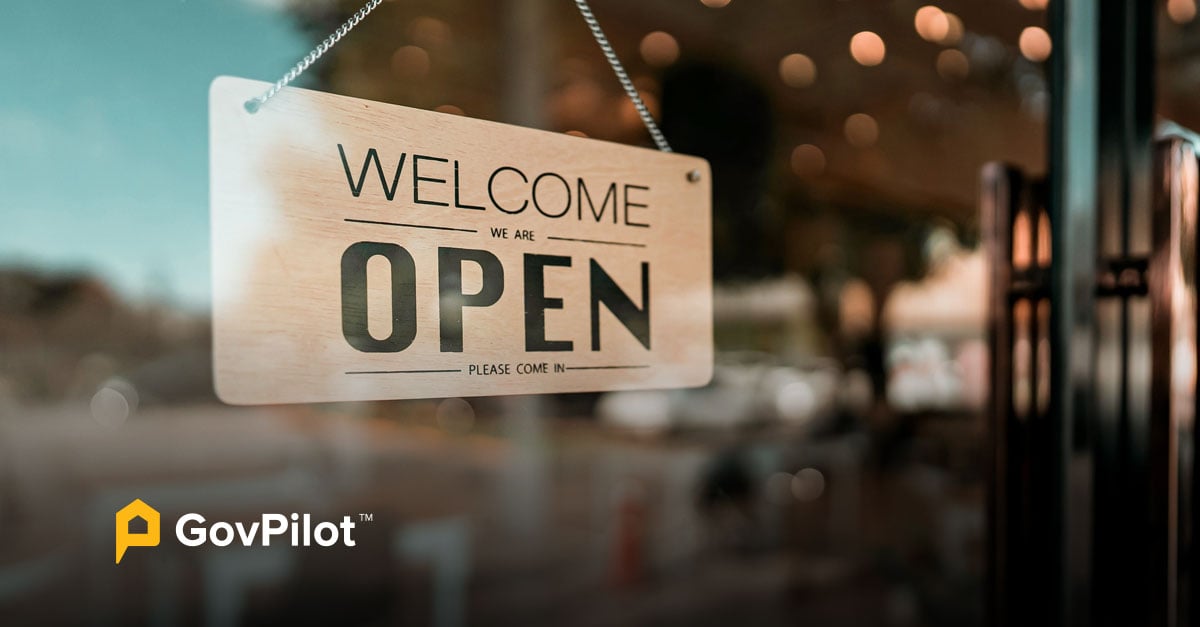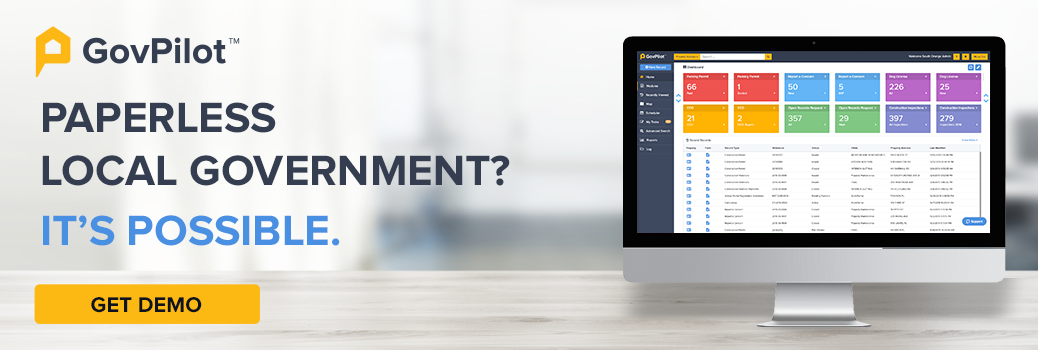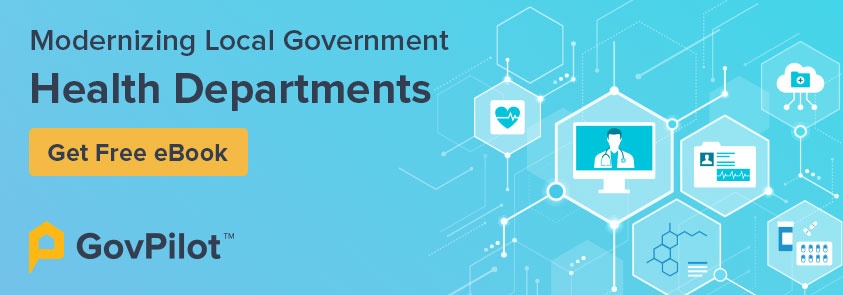Local public health is completely dependent on businesses abiding by important health codes and county or municipal health departments performing regular inspections to ensure all health standards are being met.
Without proper recurring health inspections, facilities ranging from restaurants to salons to animal shelters to public pools could become unsanitary and unsafe for the public. Yet many local health departments don’t have the bandwidth and technology to perform inspections frequently and efficiently, resulting in health ordinance violations going unnoticed.
In this guide, you’ll come to understand why local health departments need modern inspection workflows, how health department software can help, and the specific types of businesses you need unique inspection forms for.
Why Do Local Health Departments Need to Modernize Their Health Inspection Processes?
Anyone that’s ever gotten food poisoning from a restaurant or a skin rash from a public pool recognizes the problems that come from improper procedures from public facilities. Local health departments that fail to perform health inspections consistently and thoroughly are doing a disservice to the health of their constituents.
Yet, the following manual processes result in health inspections being less than optimal:
- Scheduling by inspectors or administrative officials: human error can allow for time to lapse and important inspections to be seriously delayed or not happen at all.
- Paper-based inspection forms: having to hand-write notes about a health inspection is time-consuming and requires the health inspector to manually file the paperwork.
- Traditional storage of inspection records: keeping historical business and property records together is important for keeping track of how businesses are doing when it comes to consistently meeting health codes. Yet, if your government is still using paper-based filing in cabinets, it’s easy to lose track of essential historical health inspection documentation due to disorganization.
- Generic inspection forms: different types of businesses and properties have completely varying health codes to abide by. Yet, many local inspectors use generic inspection forms across industry-types.
Follow along for more insight into the types of health inspections local health departments need to prioritize and the types of technology that can modernize their inspection processes.
What Types of Facilities Do Local Health Departments Need to Prioritize for Health Inspections?
Local health departments should inspect all business-types before issuing a health license. That being said, here are the specific industries local governments especially have an obligation to inspect in order to prevent hazardous health code violations that will have an adverse impact on your community-members:
1. Retail Food Establishments
Retail food establishment inspections are critical to ensure that restaurants and food vendors (both permanent and temporary) prepare food in a safe and sanitary measure.
Here are specific tips for forming a Retail Food Establishment Inspection Strategy based on the FDA’s Food Code.
2. Aquatic Facilities Like Pools and Spas
Pools, water parks, and any facilities that utilize water need to be constructed in a safe manner and meet specific requirements for keeping water clean and preventing the spread of infectious diseases to receive and maintain a recreational swimming pool license.
Aquatic facility inspections using the CDC’s Model Aquatic Health Code as well as state and local codes are necessary to keep constituents safe.
3. Hospitals and Nursing Home Facilities
Health inspections should be conducted to ensure that patients of all ages are receiving proper care and that the facilities are free from hazards such as infection and fire hazards.
Your local government should also register senior citizens to keep the elderly’s contact information handy in case of an emergency / health crisis. Learn more about How to Form a Government Senior Citizen Management Strategy and how emergency management software works.
4. Child Care Businesses and Day Camps
Your local government has to ensure that the children in your community are safe by performing regular inspections of child care facilities.
If a facility meets code standards, your health department can issue child care business licenses and day camp licenses.
Your local health department can also prioritize youth health by taking action to Reduce Childhood Obesity via Government Resources.
5. Animal Facilities like Animal Shelters, Pet Shops, Veterinarians, and Dog Parks
Health inspections of animal facilities are critical to keep both animals and humans safe. Proper sanitation is critical in ensuring that zoonotic diseases (diseases that spread from animal to human) don’t spread and that animals are living in humane living conditions.
Here are more considerations for your Modern Local Government Animal Control Strategy.
6. Hotels and Motels
Tourism is a critical part of any good Municipal Local Economic Development Strategy, but no visitors are going to choose your neighborhood if they don’t have a sanitary place to stay. Hotels, motels, and short-term rentals should all be inspected on a frequent basis.
Looking for more ways to attract visitors to your community? Consider Public Space Planning and Municipal Planning to build parks, attractions, and shopping areas worth visiting.
Lastly, other common facility types that need recurring health inspections include massage parlors and tattoo / piercing shops.
7 Ways Local Governments Can Improve Inspection Workflows with Technology
Health inspections (and other inspection types like construction inspections) can be modernized by embracing government inspection software. Public health directors need to strategically plan around making improvements to their existing infrastructure and government technology.
Here are the benefits of moving to digital health inspections:
1. Simple Mobile Inspection Forms
Inspections can be recorded from a government mobile device such as a tablet from the field using GovPilot. This approach is significantly faster than writing notes by hand, and the inspection form and all-related paperwork can be uploaded immediately to the government cloud and made instantly accessible to relevant officials in the health department and relevant officials in all government departments.
2. Customizable Digital Forms for Any Inspection Types
There are many types of businesses that have unique health codes and requirements for keeping conditions sanitary and safe.
Health inspection forms can be customized to meet the specific demands of a particular building. The health inspector can pull any inspection form up on the fly as they travel from business to business from a tablet.
3. Automated Scheduling Reminders
Public health risks occur when inspections slip through the cracks and code violations go unchecked. In order to prevent a health emergency, your local health department can utilize government scheduling software to set automated reminders for health inspectors when a new or annual inspection needs to take place.
4. Digital Storage of Inspection Records & Related Documents
As soon as an inspection form is completed, the record will be uploaded and stored in your local government cloud. Digital public health data management is not only more efficient and organized than traditional paper-based storage, but forms are easily accessible to all relevant officials and kept secure with modern government cybersecurity and regular data backups.
A full set of property records (including past inspection forms and notes) can be pulled up in seconds using your local GIS map.
Learn more about the full benefits of cloud-based Local Government Data Storage.
5. Online Inspection & Licensing Requests
Business registration and health licenses can be applied for online by local business owners. Your local government will improve private-public sector relations by giving businesses a simple outlet to apply for the documents and inspections required to legally operate. Inspectors will save time and energy planning upcoming inspections by having the business-owners apply online. Win win!
6. Digital Approval / Denial of Health Inspections & Submission of Health Licenses
Once an inspection is completed, your inspectors can use digital government communications channels to follow-up with the relevant parties and let them know if they have passed or failed their health inspection. If they failed, the inspector can inform the business-owner about what went wrong and the steps they need to take to get approved. If the business passed inspection, your government can submit the health license and any other relevant paperwork digitally. All of these records will be automatically stored in the cloud.
7. Insightful Health Data Collection & Analytics
What types of health inspections are your inspectors performing most? What is the pass / fail rate? Are there common issues you're running into with certain businesses? Which types of health applications are generating government revenue?
Data holding the answers to these questions will be collected, and government analytics can be used to visualize the data and help you measure performance against government KPIs.
Improve Your Local Health Inspection Processes
Local health inspections are imperative to public safety. Your health department can leverage government software to keep your inspection schedule organized, make inspections quicker and more efficient via digital forms, and store all of the relevant data in the cloud.
To learn more about how GovPilot health department software can help with inspections and beyond, book a free demo.
Modern Health Inspection FAQs
Why Are Local Health Inspections Important?
Local health inspections in ensuring that local businesses and facilities abide by codes that are critical to local public safety. Businesses like restaurants, nursing homes, massage parlors, pet shops, as well as public pools, dog parks, etc. all pose hazardous risks if sanitation and safety measures aren’t prioritized.
If local governments don’t strictly enforce health codes, public health issues will unfortunately slip through the cracks. Learn more about forming a Modern Code Enforcement Strategy.
How Does Health Department Software Help Beyond Inspections?
Health department software assists in digital forms for inspections, as well as these other public health processes:
- Online health licensing and permitting applications including
- Animal / pet licenses
- BYOB permits
- Massage parlor license
- Mobile food vendor licenses
- Outdoor café permits
- Pet shop, kennel, shelter permits
- Vending machine licenses
- Dog park use pass applications
- Citizen complaint management
- Mosquito control surveillance
- CEHA air program applications
- Cloud-based public health data storage and management











